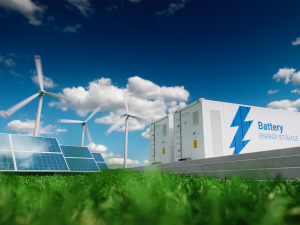The consensus among presenters at the 2022 Paydirt Battery Minerals Conference in Perth last week was that both upstream and downstream supply chain security will be crucial to the success of the global decarbonisation effort.
Over two days, delegates heard that Western Australia would play an enormous role in the supply of battery minerals but also that the State was primed to capture downstream processing opportunities as end-users of battery minerals try to wean off their dependence on China. Check out our conference coverage here.
The conference took place against the backdrop of two different but thematically linked stories – the Federal Government agreeing to loan $1.05 billion to Iluka Resources (ASX: ILU) to build Australia’s first fully integrated rare earths separation facility at Eneabba, north of Perth, and the threat of the nickel price spike derailing IGO’s (ASX: IGO) $1.1 billion bid for Western Areas (ASX: WSA).
In other big news this week:
- Gold Road launches agreed $308m takeover bid for investment company DGO Gold
- Core Lithium says its Finniss project – in construction – is on schedule to become Australia’s next lithium producer
- Mineral Resources, the ASX’s top lithium stock, ramps up production from Mt Marion and Wodgina
- Dreadnought Resources strikes massive sulphides at its Illaara base metals project
Iluka, an established mineral sands miner hoping to extract rare earths from its waste stock piles, is not the only company that attracted government support.
Hastings Technology Metals (ASX: HAS), which is on track to become Australia’s next rare earths producer, has received loan support from the Northern Australia Infrastructure Facility for its world-scale Yangibana project in WA’s Gascoyne region. Heavy rare earths proponent Northern Minerals (ASX: NTU), which owns the Browns Range project in WA’s Kimberley, is also on Canberra’s radar.
China controls about 80% of the world’s supply of rare earths and has used this control to its advantage in trade spats many times in the past decade. Securing supply of rare earths has long been a pinch point for the West and Iluka’s rare earths separation facility is one example of what conference presenters saw as Australia’s opportunity to help level the playing field.
Federal Resources Minister Keith Pitt, who spoke at the conference, likened it to the “10¢ washer that we don’t produce that shuts the country”.
“We are determined to get as far down the processing stream as we possibly can in this country because our sovereign manufacturing capability is incredibly critical,” he said.
The cohort of conference presenters acknowledged that WA was a perfect fit for downstream processing because of the availability of a highly skilled workforce, a transparent and robust regulatory framework and very low geopolitical risk.
The soaring spot price of nickel is directly attributable to the geopolitical risk that downstream processing in WA can curb. Assuming, of course, that there are some new meaningful discoveries to supplement an existing industry wide resource base that needs replenishing.
St George Mining (ASX: SGQ), one of the conference presenters, is regarded as the most exciting and advanced exploration play in WA’s nickel belt while Lykos Metals (ASX: LYK), which only listed on the ASX late last year, is focusing on using modern exploration techniques to work over highly prospective battery minerals ground in Bosnia-Herzegovina.
Nickel explorers and producers made up almost a quarter of the 52 presenters and the consensus among them was that a short-term glitch was overshadowing a sustained long-term upside. But Chinese nickel investor Tsingsh is not the only one to feel the sting of the price spike.
Western Areas chief financial officer Joe Belladonna told delegates the real question is “not how much are you going to pay for your nickel, but where are you going to get it from”.
The elephant in the room at the conference was how fellow presenter IGO would answer both of those questions after an independent expert’s report by KPMG found the $1.1 billion takeover price tag – agreed to by IGO and Western Areas in December – was neither fair nor reasonable to the target’s shareholders.
ASX disclosure rules prevented either party from commenting and IGO’s tight-lipped chief financial officer Matt Dusci noted at the conference that “no doubt the short-term volatility of the nickel market has made this transaction difficult and complex”.

